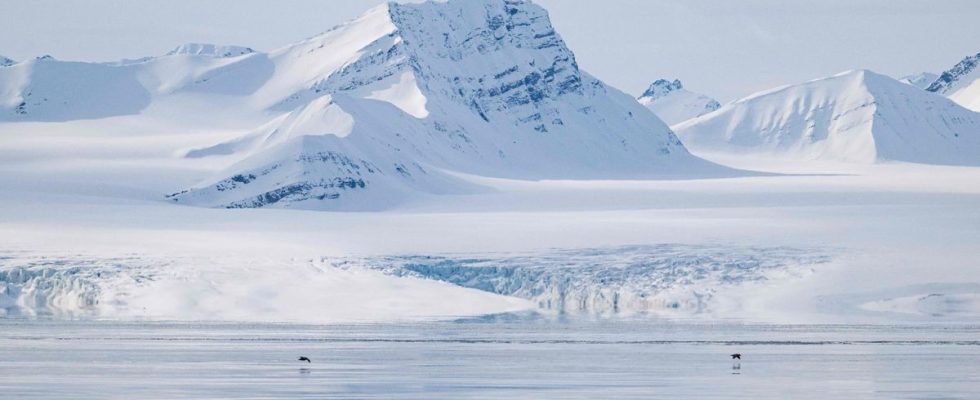The glaciers are bad. In its annual report on the state of the global climate, the World Meteorological Organization (WMO) of the United Nations highlights the changes that have taken place on a planetary scale on land, in the oceans and in the atmosphere. They are caused by record levels of greenhouse gases that trap heat. With one noticeable effect: glaciers melted at record speed last year, a phenomenon that seems unstoppable.
The report confirms that the planet’s average temperature in 2022 was 1.15°C warmer than in pre-industrial times (1850-1900) and that the past eight years have been the warmest on record, despite cooling caused by the La Niña weather phenomenon three years in a row. According to the WMO, “Antarctic sea ice has reached its lowest level on record and the melting of some European glaciers has literally exceeded records”.
Nearly 30 m lost since 1970
And “the game is already lost for the glaciers because the concentration of CO2 is already very high and the rise in sea level is likely to continue for thousands of years to come”, declared the secretary general of the OMM, Petteri Taalas. The melting cannot be stopped “unless we create a way to remove CO2 from the atmosphere”, he said.
The reference glaciers for which the researchers have long-term observations experienced an average thickness variation greater than -1.3 meters between October 2021 and October 2022, a much greater loss than the average of the last ten years. The cumulative thickness loss of glaciers since 1970 amounts to nearly 30 m.
The European Alps have broken glacier melt records due to a combination of low winter snowfall, the arrival of Saharan dust in March 2022 and heat waves between May and early September. The situation of the Swiss glaciers is also particularly dramatic. They lost 6% of their ice volume between 2021 and 2022. For the first time, no snow survived the summer melt season, even at the highest measurement sites, and so there is no no fresh ice accumulation.

